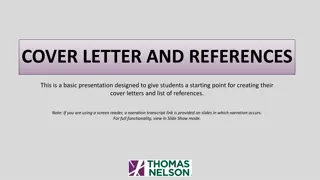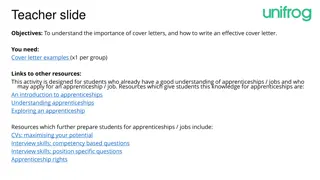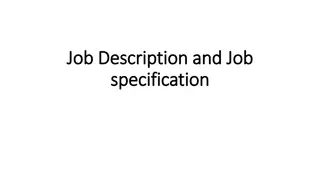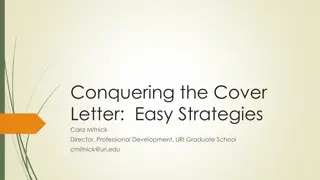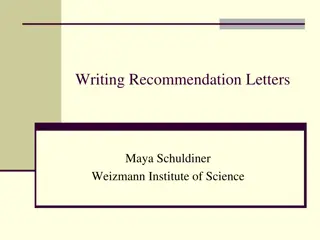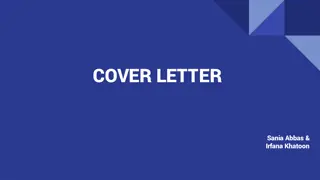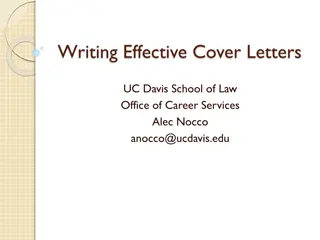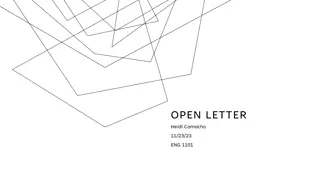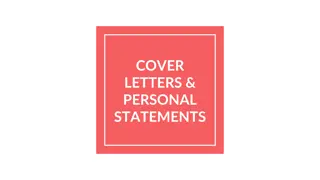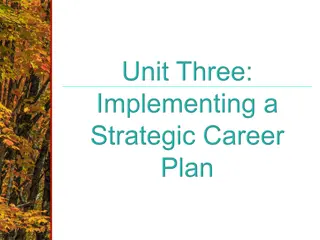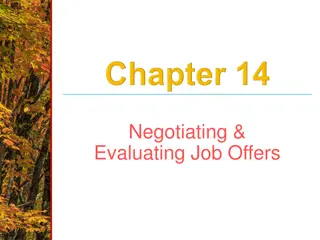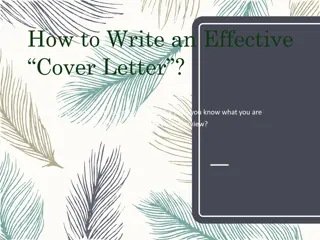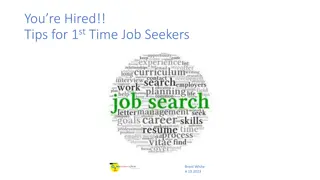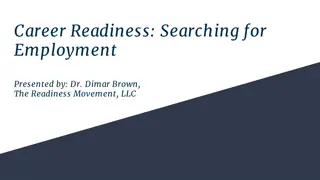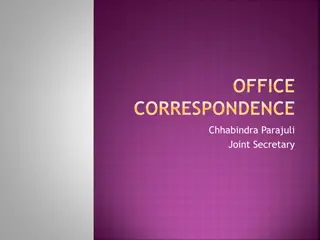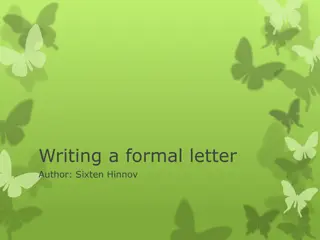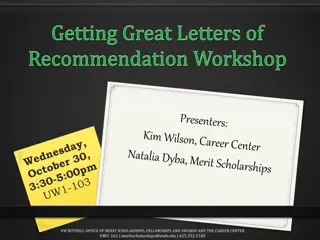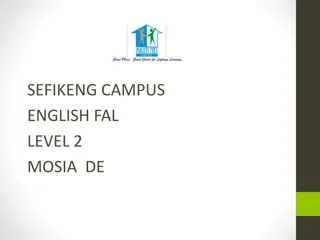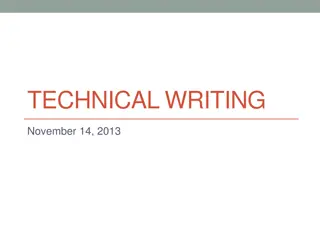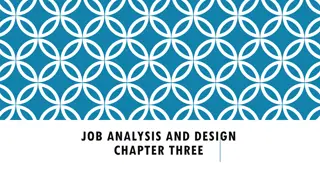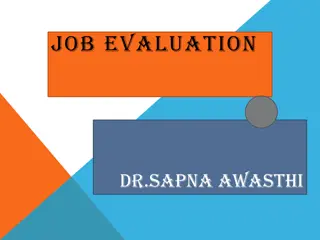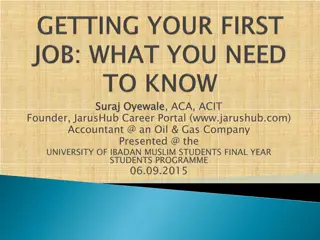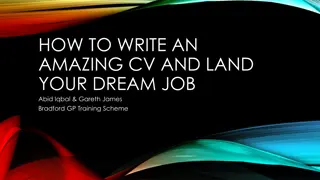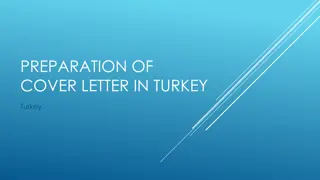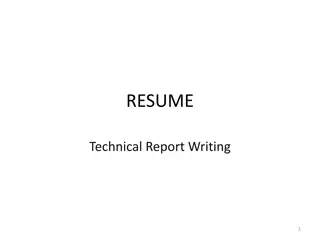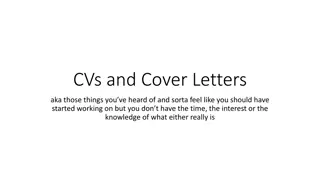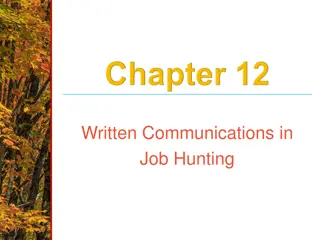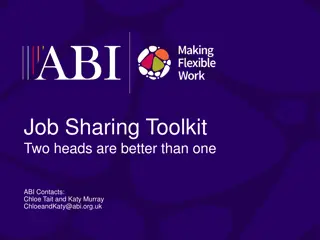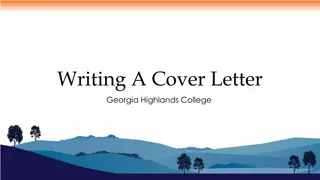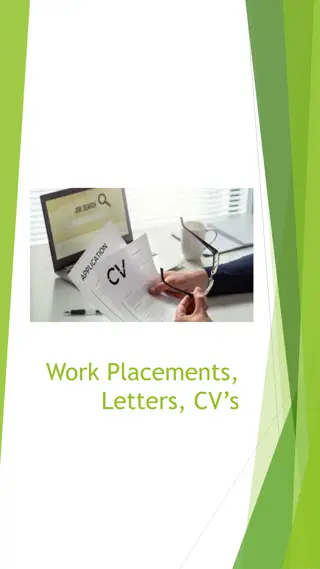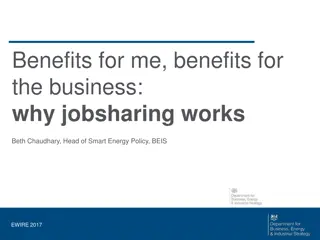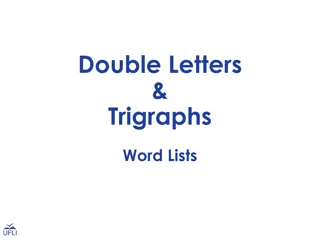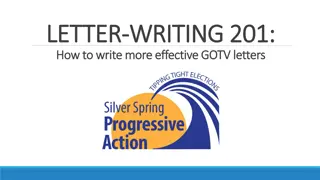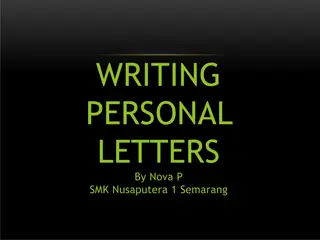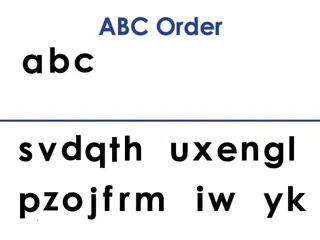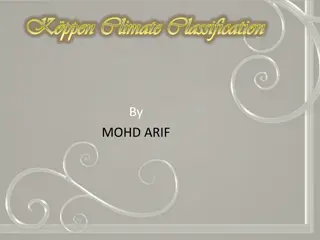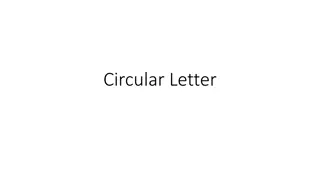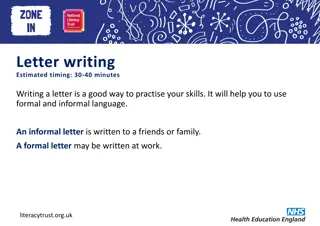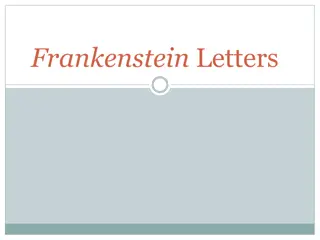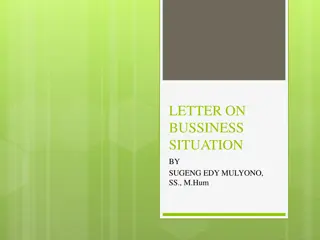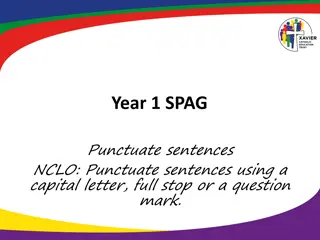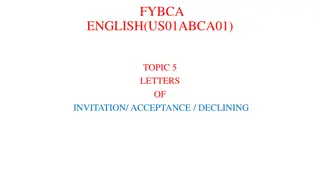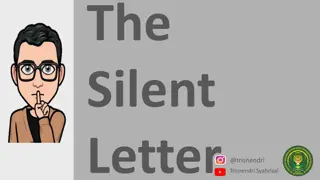Mastering Cover Letters for Job Success
Elevate your job application game by mastering the art of writing compelling cover letters. Learn from experienced professionals about the purpose of cover letters, how to make them stand out, and essential tips for crafting a standout document that showcases your qualifications effectively.
Download Presentation

Please find below an Image/Link to download the presentation.
The content on the website is provided AS IS for your information and personal use only. It may not be sold, licensed, or shared on other websites without obtaining consent from the author. Download presentation by click this link. If you encounter any issues during the download, it is possible that the publisher has removed the file from their server.
E N D
Presentation Transcript
Enhance Your Chances: How to Shine Brightly in a Tough Job Market!
Three Goals for This Session 1) Gain new perspectives on writing a cover letter. 2) Learn useful tips for making the most of your interview. 3) Have fun!
Introductions April Ritchie Adult Services Coordinator Erlanger Branch Kenton County Public Library Erlanger, KY April.Ritchie@kentonlibrary.org
Introductions Mark Shores Assistant Director/Regional Campus Librarian Miami University Hamilton Rentschler Library Hamilton, OH shoresml@muohio.edu
Who are we? We are practicing library professionals Real-life experience sorting through piles of resumes/cover letters Real-life experience selecting candidates for interviews Real-life experience conducting interviews We are not HR professionals we may not be able to answer every question
Part I: Cover Letters Is your cover letter doing its job? What is the purpose of a cover letter? Are you maximizing the full potential of your cover letter? How can you make your cover letter stand out from the crowd?
Cover Letters 15 Tips for a Better Cover Letter
Tip #1 Write a full letter A few sentences or even one or two paragraphs are not enough. This is your chance to sell yourself use the letter to market yourself. Hint: An email is NOT a cover letter.
Tip #2 Proofread, proofread, proofread Have someone else proofread Do not rely solely on the spell-check feature of your word processing software. Spell-check programs do not catch every mistake. Example: I am well-versed in the principals of information literacy instruction.
Tip #3 Your cover letter is more than just a cover letter; it is a writing sample Your potential employer will need for you to write things such as: grants, reports, proposals, board reports, newspaper articles, book reviews, etc. Your future supervisor will not want to correct your grammar and writing errors.
Tip #4 Avoid over-using the same words throughout your document This is a common mistake and it makes for tiresome reading. Commonly over-used words: experience opportunity library librarian position
Tip #5 Do not begin every paragraph in your letter with the word I Too many sentences beginning with I will make you look like a less than stellar writer. I have I would I am I will
Tip #6 Your cover letter should not be all about you and your needs Talk about what you can do for your potential employer. The employer wants to know how you can help make his or her library a better place.
Tip #6 (Contd.) Real-Life Example: Readers Advisory Librarian As an avid reader, one who often has half a dozen books from different genres on the nightstand so I can read by mood, I am dedicated to assisting and encouraging bibliophiles, casual readers, and reluctant readers, in their literary pursuits.
Tip #7 Do your research Before you write your letter, do some research on the library. Try to find a way to work some of your newfound knowledge into your cover letter. Look for opportunities to demonstrate how your experience or skills match up with the employer s needs.
Tip #7 (Contd.) Example: From viewing your website, I noticed that your library is beefing up its outreach to non-traditional students. I have a keen interest in services to this group; I planned and presented a program for older students as one of my class projects.
Tip #8 Your cover letter should not be a recital of your resume It should offer an intriguing glimpse of who you are and what you can do. It should pique the employer s interest enough that he will want to then read your resume The cover letter and resume combined should provoke the employer to want to bring you in for an interview.
Tip #9 Put it on paper (unless ) If you send a cover letter and resume via email or fax, be sure to state that you will also send a print copy. Make sure you send the print copies promptly
Tip #10 Quality counts Use high-quality cotton bond resume paper. Use the same type of paper for your resume, cover letter, references, and thank-you note.
Tip #10 Quality counts (cont d.) Make sure the printer you are using makes clear, clean, crisp printouts. Watch out for smudges from ink, food, makeup, coffee, etc.
Tip #11 Don t be sloppy with the details Never hand-correct (with pen or pencil) a typo on your cover letter. Print out a freshly corrected copy. Corrections matter otherwise, the employer might think you would turn in similarly untidy assignments if hired.
Tip #12 Make sure the font size is legible The employer should not have to squint to see the font. Generally, a size 11 or 12 font will work well.
Tip #13 Typewritten letters only, please Do not submit a handwritten cover letter. Ever.
Tip #14 Make sure your cover letter and resume are in agreement Do not make a statement in your cover letter that conflicts with the facts on your resume, or vice versa. Discrepancies could cost you an interview!
Tip #15 Do not state in your cover letter that you will call to arrange an interview The risk of alienating your potential employer is not worth it You will come off as pushy, and not many employers will want to bring someone like that on board
Part II: The Interview Going from nervous to confident! Do interviews make you nervous? How can you overcome nervousness so that your true personality shines through?
Invitation for an interview: Now what? Prepare, prepare, prepare . . . And then prepare some more Can you really ever be prepared for an interview? Yes! Next up: 5 Tips for the preparation process
Preparing for an Interview Overcoming the Dread 5 Tips for Success . . . Really!
Tip #1 Be absolutely sure that you are interested in the job Why waste everyone s time? It s hard to muster enthusiasm if your heart isn t in it Can be awkward to turn down a job offer this is a close-knit field
Tip #2 Devote as much time to the preparation process as you can There is no substitute for this part of the process You help shape the interview by the amount of preparation you put into it
Tip #3 Research the library Find out as much as possible about the library, company, university, or organization Web sites, annual reports, newspaper or journal articles, professional contacts, friends Visit the building beforehand, if possible
Tip #4 Research yourself ! The better you know yourself, the easier to talk about yourself Review your resume and know the details Spend time looking at interview questions: online sites books
Tip #4 (contd) Research yourself ! (cont d.) Spend time writing out answers to as many questions as you can Review the answers you have written several times
Tip #5 What do you want to know? Prepare your questions This is a key element of the interview, yet it is often not given any thought Arrive at the interview with no less than five questions in hand The questions should not focus on salary, benefits, schedule, etc.
Tip #5 What do you want to know? Prepare your questions (cont d.) Under no circumstances say: No, I don t have any questions -- I think you ve answered everything already.
Tip #5 What do you want to know? Prepare your questions (cont d.) Ask questions that get to the heart of what you really want to know: What do you like about working for the Main Street Public Library?
Tip #5 What do you want to know? Prepare your questions (cont d.) More examples: What are some of the biggest challenges this library is facing? How can someone step into this position and make an immediate impact?
The Interview Day Congratulations! You have an interview AND you ve prepared for it Nextup: 10 Tips for the Interview Day
The Interview Day 10 Tips to Help You Get the Job You Really Want
Tip #1 Be early! Drive past the building the day before, if possible. Allow plenty of extra time for traffic or unexpected events. Remember that you are on stage the minute you walk in the door.
Tip #2 Dress professionally Demonstrate your seriousness as a candidate by what you wear Check out books on the topic if you are unsure how to dress
Tip #2 (contd) What NOT to wear! Real life blunders:
Tip #3 Show enthusiasm and let your personality show through Smile Put some energy in your voice
Tip #4 Keep jokes to a minimum and pick your moments carefully when using them Be careful with self-deprecating humor! When in doubt, say nothing .
Tip #5 Be as honest as possible about your qualifications without damaging your candidacy for the position. Some employers like that you know what you don t know.
Tip #6 Make eye contact with the person who asks you a question It s creepy when candidates don t look at their questioner Avoid the stare down if in a group interview Don t stare off into space, either.
Tip #7 Go with the flow and respond positively to any unexpected events that may occur during the interview. Confrontational interviewers Interviewer is late! Remember: you re on stage
Tip #8 Find a moment to work in a comment that shows you ve done some research ahead of time. Example: I noticed from your website that you have conducted focus groups with students
Tip #9 Practice the fine art of not making your answers too brief, while at the same time not digressing into a rambling hodgepodge of thoughts. Too brief? Shows you haven t thought about the position .or maybe nerves? Too long = lack of focus
Tip #10 Be positive about everything, even if you experienced difficulties getting to the interview. Remember you re under a microscope Even a minor meltdown...


